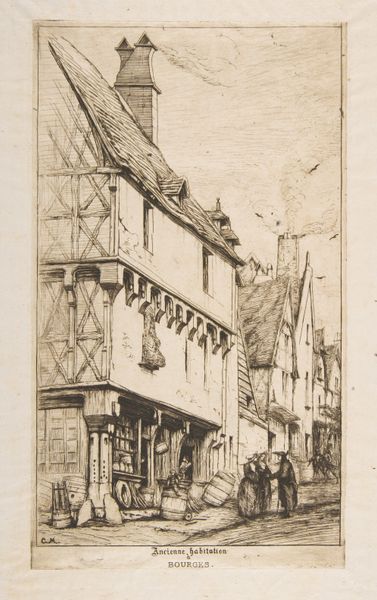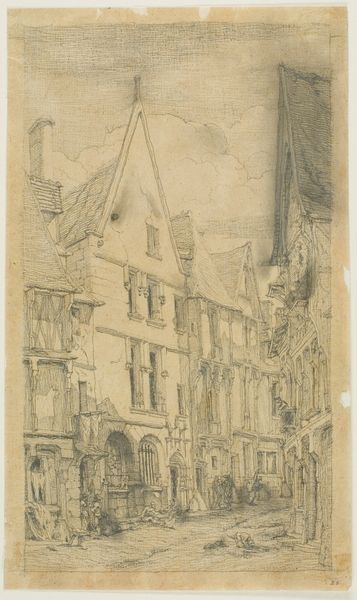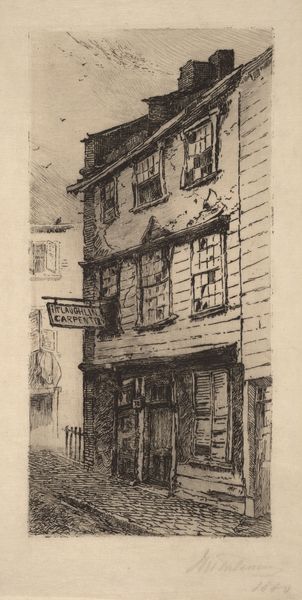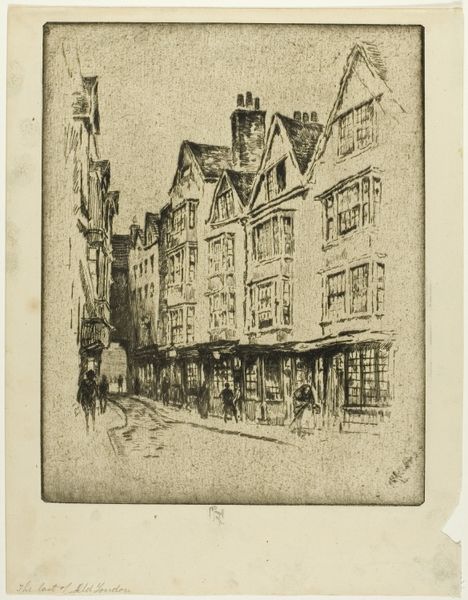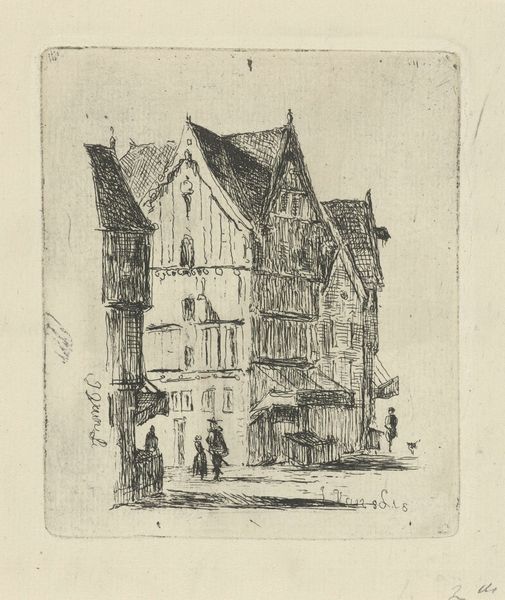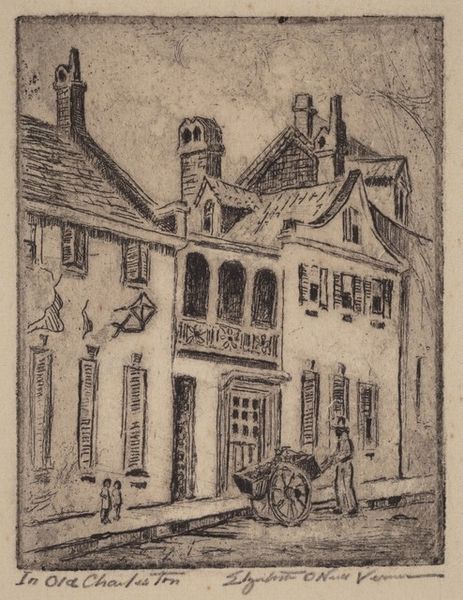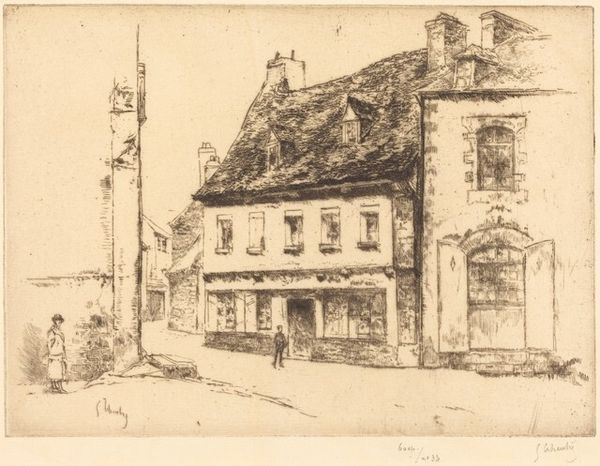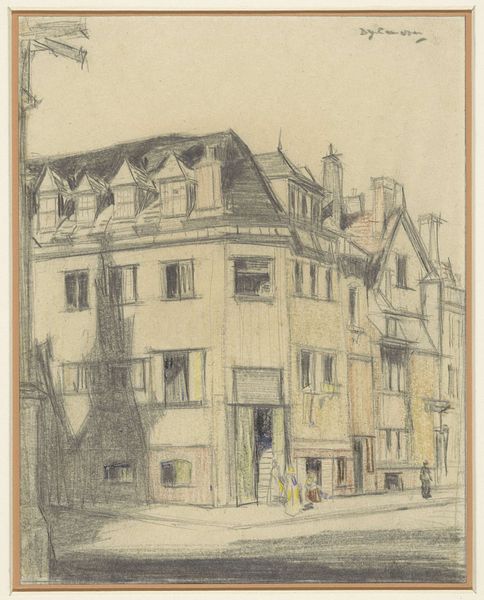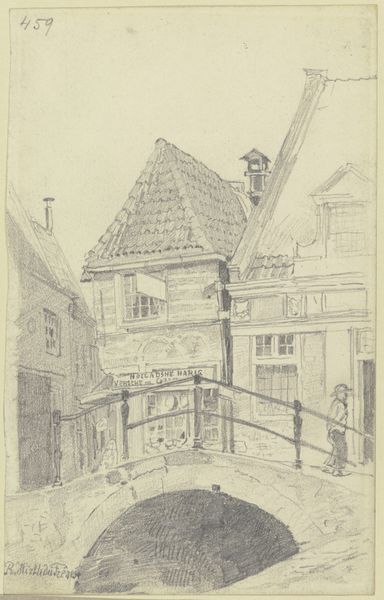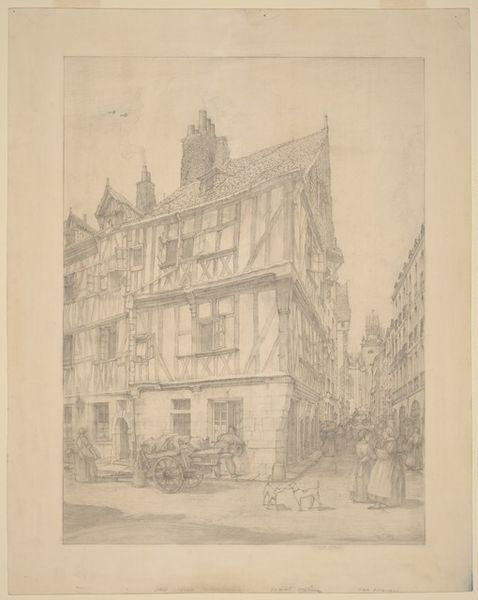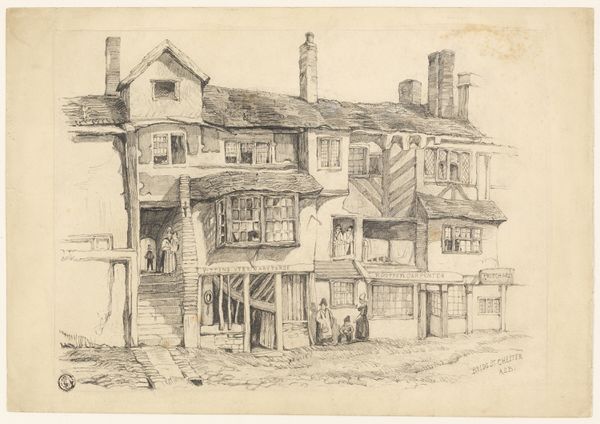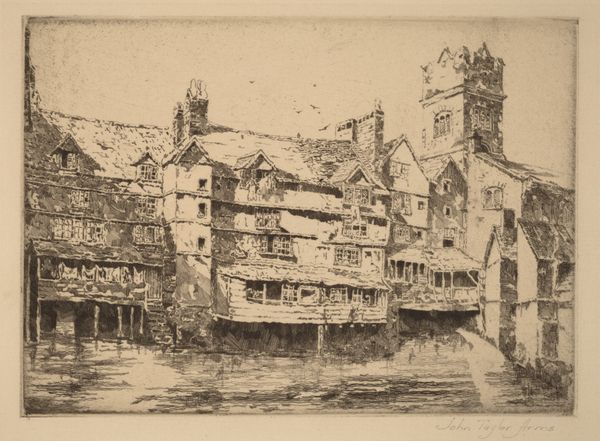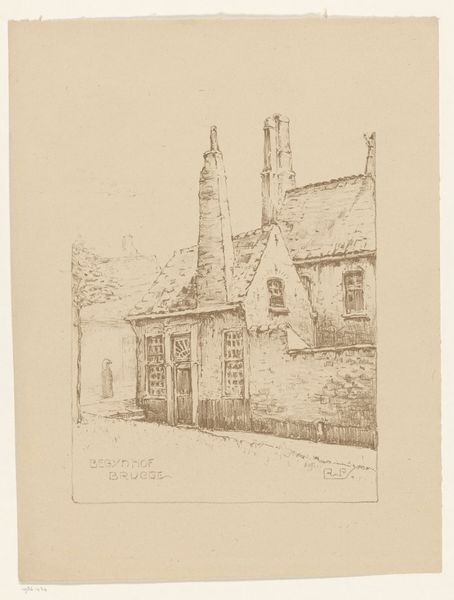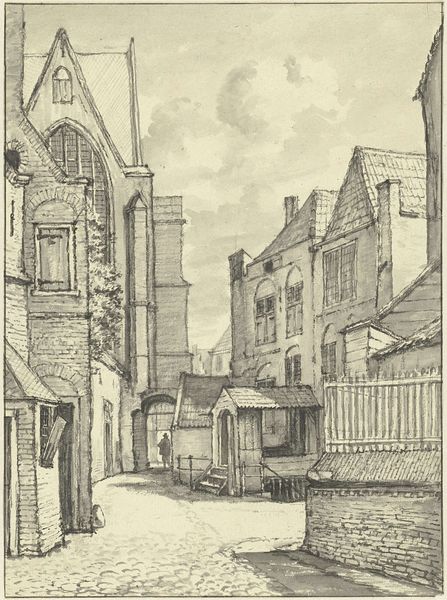
Ancienne habitation à Bourges, dite "La Maison du Musicien" (An Old House at Bourges, Sometimes Called the "Musician's House") 1860
0:00
0:00
Copyright: National Gallery of Art: CC0 1.0
Curator: Look at this etching from 1860, "Ancienne habitation à Bourges, dite "La Maison du Musicien"" or "An Old House at Bourges, Sometimes Called the 'Musician's House'" by Charles Meryon. He’s got a real knack for architectural details, wouldn't you say? Editor: It's arresting, definitely draws you in. But what hits me first is this sense of precariousness, almost a melancholic imbalance. The buildings lean in, the light is murky... it feels like a memory fading, or a stage set about to collapse. Curator: Well, Meryon did have a turbulent life and channeled much of that into his art. He really became known for capturing a very particular Paris undergoing transformations and other urban subjects like this. He almost seems to memorialize places, like this “Old House.” There is always some historical building, or social context he includes. It seems to always hold a place in his pieces. Editor: That fragility I felt, it makes sense now knowing Meryon was etching a past disappearing before his eyes. Look how he teases detail from the grime of the printing. The lines are so delicate and almost brittle that creates an overwhelming sense of being aged and ready to come undone, not exactly collapse, more like crumble. Curator: Exactly! There’s a Romantic's nostalgia at play, and a Realist's documentation of change. He uses ink and print techniques in a such a way that really brings out the cityscape with very expressive light and darks. I always see the smoke plumes rising into the sky, as a symbol for progress barreling forward and perhaps not so subtly consuming this historic home, in this case this print embodies a powerful symbol of transition and preservation. Editor: Makes you wonder what stories that “Musician’s House” holds. Who lived there, what music filled those rooms? What did they all see? Now the old house is represented here with a musician. The scene could almost inspire some contemporary poem lamenting a lost heritage. Curator: Right! Meryon offers more than a depiction; he gives us a historical portal, a way to witness Bourges, at this pivotal moment. Editor: So well said. Meryon does invite a pause. In the end the print compels you to reflect. A wonderful blend of documentation and the dream of remembrance.
Comments
No comments
Be the first to comment and join the conversation on the ultimate creative platform.
